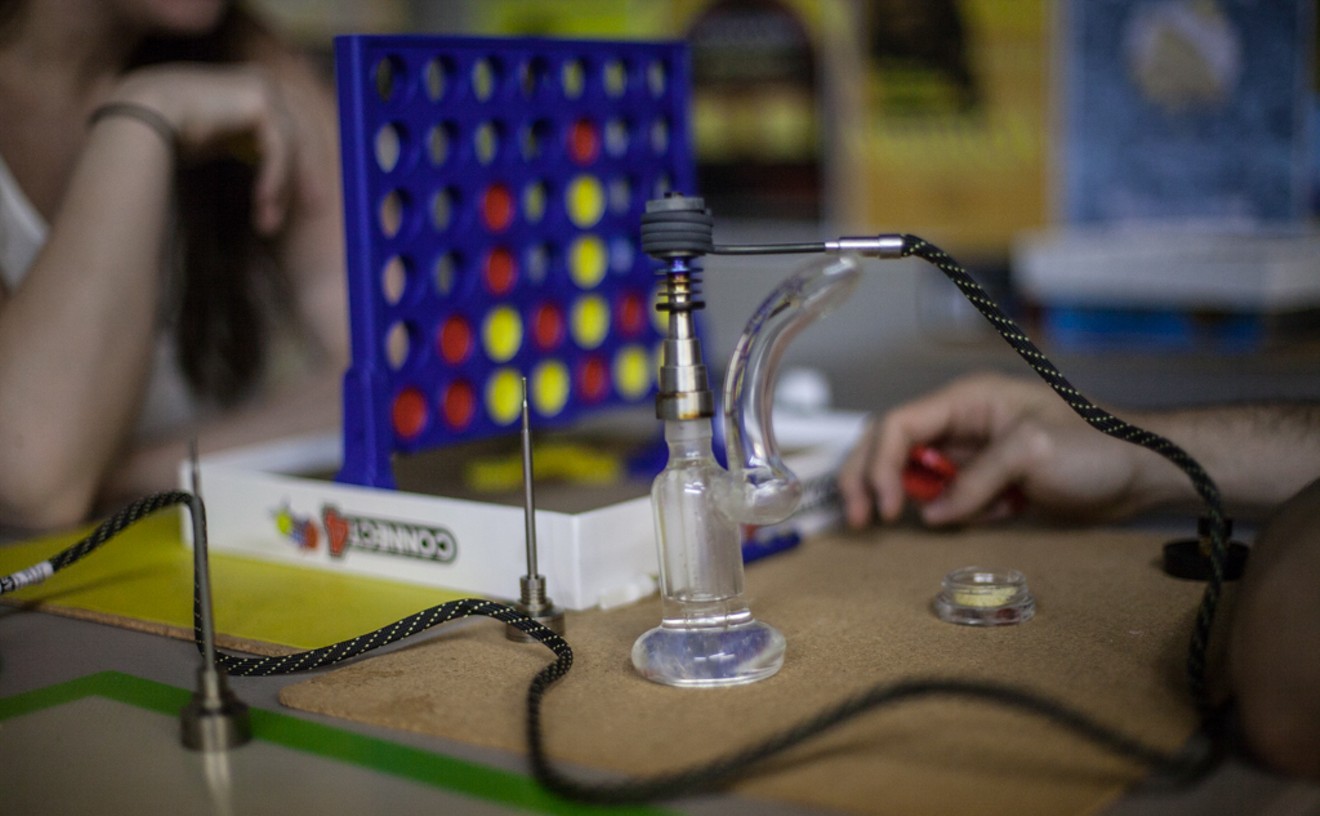Marijuana consumers are a little too high on themselves behind the wheel, according to government and road safety organizations — but the affects of the plant on drivers aren't as clear as those of alcohol.
Recent studies from the National Highway Traffic Safety Administration, Colorado Department of Transportation and American Automobile Association highlight growing concerns among law enforcement, chiefly that a large portion of marijuana consumers think they're better at driving after using pot, and the majority of Americans don't think stoned drivers will be caught by police.
Earlier this week, NHTSA deputy administrator Heidi King told a United States Senate committee that her organization needed more resources for public education about marijuana-impaired driving. According to King, NHTSA research has shown that “most users of marijuana who have participated in market research we have developed are saying they believe they drive safer when they’re high because they’re very focused and they’re being very cautious.”
King's remarks echo CDOT surveys and public education campaigns that say marijuana users don't think they'll be caught by police. In a series of 2018 surveys by CDOT, almost half of regular pot users said they felt they weren't a danger on the road after consuming, relying on personal experience instead of government information to determine their impairment. A new national poll from AAA shows similar results, with almost 70 percent of Americans believing it's unlikely a stoned driver would get caught by police. According to AAA, an estimated 14.8 million drivers also admitted to driving within an hour of using marijuana at least once in the past month.
"Choosing to use cannabis triggers the same responsibilities as choosing to use alcohol: The bottom line is that if you're impaired, you should not drive," AAA Colorado spokesman Skyler McKinley says in a statement. "Still, our latest research shows that many drivers don't consider marijuana-impaired driving to be as risky as driving drunk. Now is an important time to have a conversation about safe use, and to drive home the point that people who drive high put everybody at risk."
However, McKinley's statement go against comments from our readers, with many reporting that they drive the same or better after using marijuana. A congressional report on the subject didn't back up those claims, but it did conclude that "studies of the impact of marijuana consumption on a driver’s risk of being involved in a crash have produced conflicting results, with some studies finding little or no increased risk of a crash from marijuana usage."
The perception of marijuana's negative impact on driving skill is widely accepted, but pot use and impairment aren't so easy to scientifically connect, like alcohol. Breathalyzers and blood tests can show the amount of THC in your body, but your marijuana tolerance and time of consumption can dramatically affect how impaired you really are. Regular users can still have high amounts of THC in their blood after not consuming pot for days and being totally sober, while novice users can still be significantly impaired hours after smoking despite not having THC blood levels deemed legally impaired.
"Detecting impairment due to use of marijuana is more difficult. The body metabolizes marijuana differently from alcohol,” authors of the congressional report wrote. “The level of THC (the psychoactive ingredient of marijuana) in the body drops quickly within an hour after usage, yet traces of THC (nonpsychoactive metabolites) can still be found in the body weeks after usage of marijuana.”
In 2018, Adams County Sheriff deputies invited a handful of participants to drink beers, smoke joints and then test their driving skills on a closed course in order to determine how impaired they really were; the study also observed distracted drivers who used a cell phone while driving. Although distracted drivers performed the poorest, the marijuana users performed considerably worse than drivers who drank alcohol.
Studies and perceptions about stoned driving may differ, but the vast majority of marijuana legalization supporters and industry participants believe it's a safety problem. Organizations such as the National Organization for the Reform of Marijuana Laws, Marijuana Industry Group and several large dispensary chains have all sponsored campaigns aimed at raising awareness about the potential dangers of stoned driving.
[
{
"name": "Air - MediumRectangle - Inline Content - Mobile Display Size",
"component": "12017618",
"insertPoint": "2",
"requiredCountToDisplay": "2"
},{
"name": "Editor Picks",
"component": "17242653",
"insertPoint": "4",
"requiredCountToDisplay": "1"
},{
"name": "Inline Links",
"component": "18838239",
"insertPoint": "8th",
"startingPoint": 8,
"requiredCountToDisplay": "7",
"maxInsertions": 25
},{
"name": "Air - MediumRectangle - Combo - Inline Content",
"component": "17261320",
"insertPoint": "8th",
"startingPoint": 8,
"requiredCountToDisplay": "7",
"maxInsertions": 25
},{
"name": "Inline Links",
"component": "18838239",
"insertPoint": "8th",
"startingPoint": 12,
"requiredCountToDisplay": "11",
"maxInsertions": 25
},{
"name": "Air - Leaderboard Tower - Combo - Inline Content",
"component": "17261321",
"insertPoint": "8th",
"startingPoint": 12,
"requiredCountToDisplay": "11",
"maxInsertions": 25
}
]












